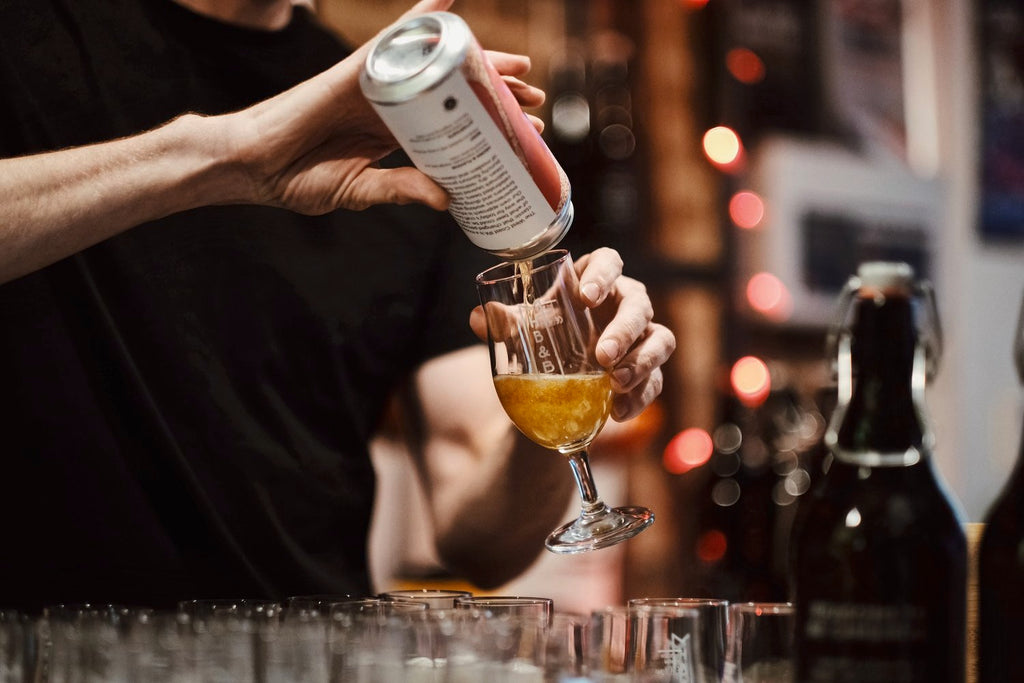We were privileged to host Cloudwater at the shop this week as part of the brewery’s Indie Retailer Roadshow, stopping in at fabulous beer retailers across the UK as part of a nationwide tour. As well as serving great beers, we also served up impassioned debate with a panel discussion on Why Independence Matters, inviting Gipsy Hill co-founder and passionate indie campaigner Sam McMeekin to participate as well. While it's going to get a whole lot tougher for independent beer businesses, be they breweries like Cloudwater and Gipsy Hill or retailers such as ourselves, it's a challenge we're ready for, a fight we won't back down from and a cause that we'll continue to shout about from the rooftops.
In the nearly five years since we opened our doors, we’ve seen some of our favourite, best selling breweries give in to Big Beer: Camden sold to AB inBev in 2015, Brixton and Beavertown both sold a share to Heineken in 2017 and 2018, and Fourpure sold to Lion/Kirin in 2018, followed by Magic Rock earlier this year.
When Camden sold back in 2015, we had a “suck it and see” approach - we were still a very young business and Camden was one of our best-selling breweries, and the first of the breweries we stocked to sell out on our watch. We decided we would wait until either a) the quality of the beer dropped, b) staff got a raw deal or c) the beer became available at supermarkets for half the price.
As the weeks went on though, we started rethinking this approach. We started to notice visits from both ABI and Heineken teams (failing terribly to stay undercover) looking at how we do things, taking notes and taking this intel back to their corporate lairs. Their aim was to copy what indies like us do well in order to capture our market share - and ultimately put us out of business.
Big Beer has been extraordinarily effective in infiltrating the craft scene. ABI bought UK retailer Beerhawk in 2016 and just last week, made two more important moves, purchasing BeerBods, a popular online retailer, as well as the warehouse lease of failed wholesaler the Bottle Shop, as well as appointing its former CEO as head of sales, in an effort to boost its Beerhawk trade arm. These are huge in-roads into both UK beer retail and wholesale, and tilts the playing field even further. Of course, now that ABI also owns Ratebeer, it has access to even better data to understand how to target customers too.
What does independence mean to us as a retailer?
 At HB&B, our business is built on independence and supporting independent producers. As an independent, we have the luxury of choosing the people and businesses we want to work with (and those we don’t). The more independent breweries we can work with, the more exciting the beer world is, both for us and our customers. Working with these breweries means we have constant variety on our shelves, and the continual excitement of trying new beers and styles. Indie brewers have the freedom to do something because it's fun and new, rather than the top priority being to deliver value to shareholders.
At HB&B, our business is built on independence and supporting independent producers. As an independent, we have the luxury of choosing the people and businesses we want to work with (and those we don’t). The more independent breweries we can work with, the more exciting the beer world is, both for us and our customers. Working with these breweries means we have constant variety on our shelves, and the continual excitement of trying new beers and styles. Indie brewers have the freedom to do something because it's fun and new, rather than the top priority being to deliver value to shareholders.
Importantly, independent breweries provide a sense of community. Many of us got into this industry for similar reasons - because we love the beer scene and the warm sense of community it offers, where we can mingle with the people who make the beers we love and the people who love drinking them.
Local independent breweries are especially important to the success of independent bottle shops. These breweries are a hugely important part of what makes the beer community - and the wider community - great. Drinkers enjoy being able to support local by choosing their beers at the bar or to take home from their local bottle shop (four out of five of our best-selling beers over the past 12 months are from SE London breweries) and their beers often offer a great gateway into the wonderful world of craft beer. We don’t want to risk losing these local breweries that have become the hub of their communities because they can't keep up. The infiltration of Big Beer into the craft scene means that smaller breweries will find it harder to compete and may fall by the wayside.

